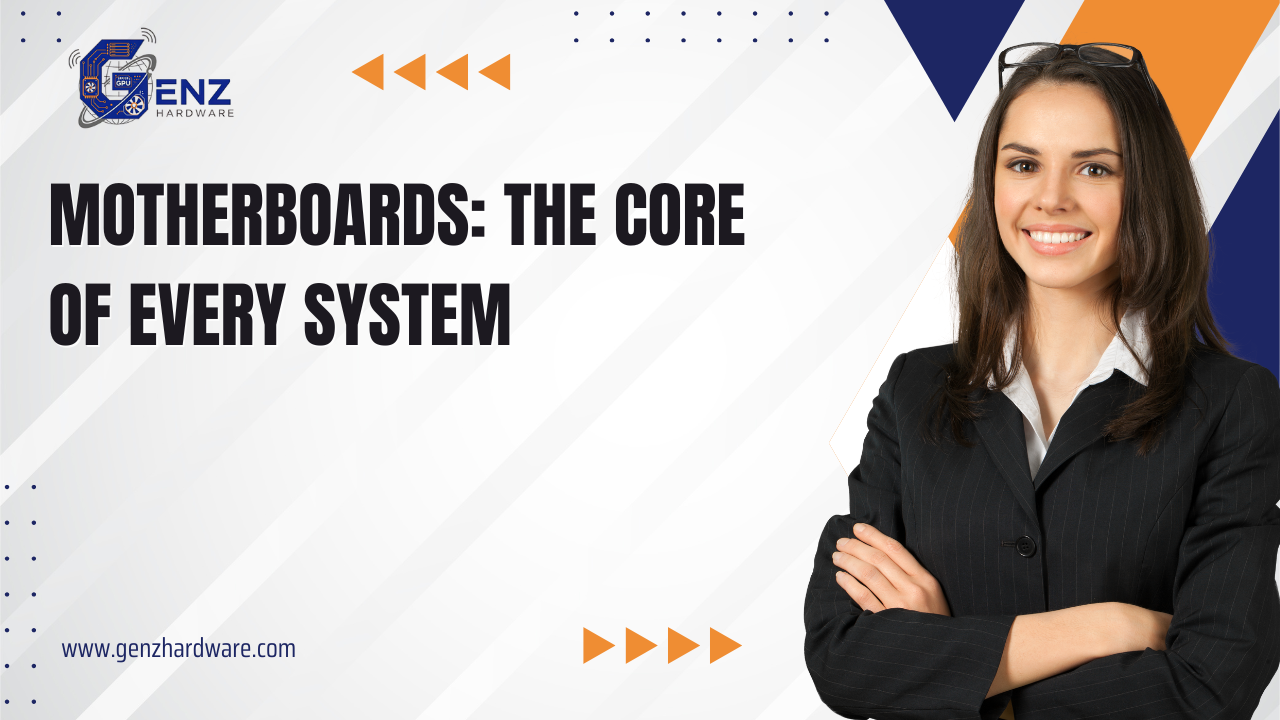
Motherboards: The Heart of Every Computer System
Every computer, whether a personal PC, workstation, or enterprise server, relies on one critical component — the motherboard. Often called the mainboard or system board, it acts as the central backbone that connects and coordinates all other hardware components, ensuring your system runs smoothly and efficiently.
What Is a Motherboard?
A motherboard is a printed circuit board (PCB) that houses and connects the CPU, RAM, storage drives, expansion cards, and power supply. It also provides interfaces for peripherals like USB ports, networking, and audio connections.
Key Functions of a Motherboard:
-
Component Connectivity: Links the CPU, memory, GPU, and storage devices.
-
Power Distribution: Supplies power to all internal hardware.
-
Data Communication: Ensures smooth data transfer between components.
-
System Control: Manages boot-up, BIOS/UEFI settings, and hardware coordination.
-
Expansion Support: Offers PCIe and M.2 slots for upgrades and add-ons.
Types of Motherboards:
-
Desktop Motherboards: Built for personal and professional PCs; available in ATX, Micro-ATX, and Mini-ITX sizes.
-
Server Motherboards: Designed for enterprise use with multi-CPU support, ECC memory, and high-speed networking.
-
Workstation Motherboards: Engineered for heavy computing and 3D workloads.
-
Gaming Motherboards: Feature RGB lighting, overclocking capabilities, and advanced cooling systems.
-
Industrial Motherboards: Built for reliability in manufacturing or embedded applications.
Key Factors When Choosing a Motherboard:
-
CPU Compatibility: Must match your processor’s socket type.
-
Chipset: Determines supported features, overclocking, and connectivity.
-
RAM Support: Check for memory type (DDR4, DDR5) and maximum capacity.
-
Expansion Slots: For GPUs, storage, and network cards.
-
Connectivity: Look for USB ports, M.2 slots, and Ethernet options.
-
Form Factor: Ensure it fits your case (ATX, Micro-ATX, Mini-ITX).
Why Motherboards Matter:
-
They determine system performance potential.
-
They enable future upgrades and expansion.
-
They ensure hardware compatibility and stability.
-
They influence thermal efficiency and cable management.
Conclusion:
A motherboard is more than just a circuit board — it’s the foundation that brings your entire computer to life. Whether you’re building a gaming rig, a business workstation, or a high-performance server, choosing the right motherboard ensures stability, compatibility, and long-term reliability.








